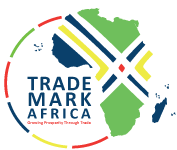Oloitoktok – Tarakea & Lwakhakha – LwakhakhaBorder Mission Trips
On February 09 and February 23, 2023, TMA conducted fact-finding missions at two border posts – Oloitoktok (Kenya)/Tarakea (Tanzania) and the Lwakhakha (Kenya)/Lwakhakha (Uganda) – to assess cross-border trade issues including the status of trade facilitation facilities and trade flows. Significant agriculture trade is happening across these borders, promoting food security in these border regions.
At the Oloitoktok – Tarakea border, from January to December 2022, $39 million of products crossed from Tanzania into Kenya (75% agricultural products). On the other hand, Tanzanian imports from Kenya are primarily industrial products, with only 8% being agricultural products(e.g., animal feeds, edible oils, and juices).
Cross-cutting key issues at the two borders include border smuggling, lack of equipment (e.g., scanners), power outages, and lack of organization of cross-border traders.
ERRA is designing cross-border trade intervention to improve efficiency, promote better coordination, and support cross-border traders:
- Support the establishment of cross-border traders associations.
- Support border agency coordination.
- Improve signage at the border posts.
- Construction of cold rooms at the borders.
- Install solar power for the border station to address power outages.
Soroti-BusiaBorder Mission Trip
A key objective under ERRA is to support more structured food trade from food surplus to food-deficit countries, particularly during the prevailing drought season. From January 23-27, 2023, the ERRA team visited Pela Commodities’ Agri-processing Facility at Soroti and the Busia border to learn more about the dynamics of staples trade between Uganda and Kenya.
The trip highlighted Uganda’s challenge in reducing the high levels of aflatoxin-affected staples traded with its neighbours, especially Kenya.
Some of the key constraints noted include the following:
- A large number of small-scale farmers use poor agriculture practices resulting in low productivity and poor-quality maize;
- Poor aggregation, storage, and transport of staples from source and the low levels of value addition in Uganda.
- Fragmented supply chains and the informal nature of trade along the value chain with numerous middlemen/traders
ERRA is looking to develop a market systems intervention to address these constraints, including:
- Enhance the capacity of government and third-party actors to enforce SPS measures and food safety standards.
- Pilot different models, such as a ‘hub’ model, to address the first-mile supply chain issues, including compliance with
- standards, better aggregation, and supply of inputs.
- Promote investment into processing in Uganda (drying, sorting, aflatoxin scrubbing).
- Enhance market linkages between certified Ugandan traders/processors with Kenyan Millers.
- Evidenced-based advocacy around grain policy implementation and private sector issues.

